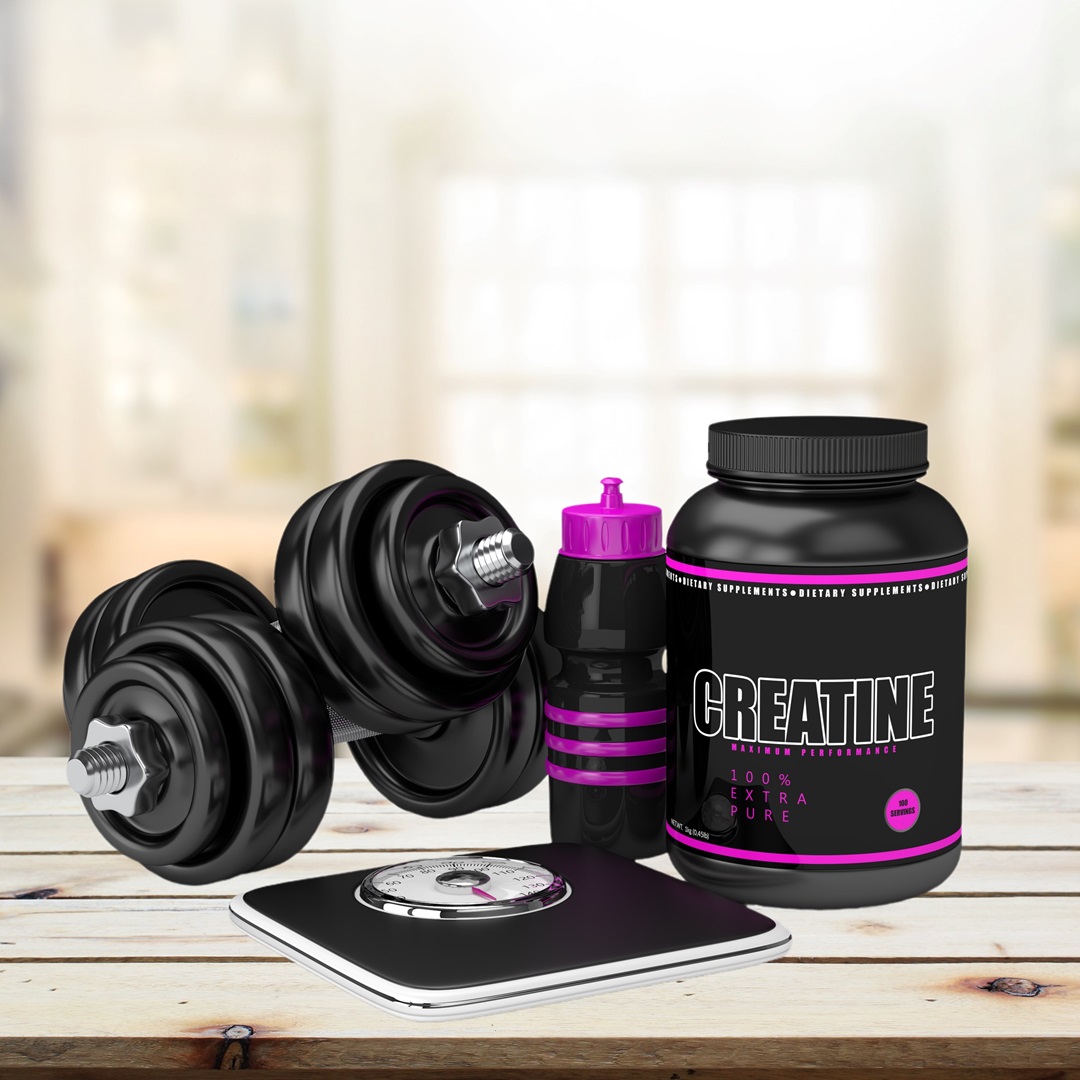by Stephen Luther, M.D.
Share

Good news: It’s a no-brainer that additional energy production results in more effective workouts. Supplementing creatine with exercise such as functional fitness may increase muscle size, strength, and power. During physical activity, creatine comes to the rescue as a rapid energy source when our body’s primary energy source – adenosine triphosphate (ATP) – is depleted, allowing for a longer, harder fitness regimen.
Better news: Creatine’s supplemental boost in energy production can also benefit our brain. Neurons expend significant energy for cognition, problem solving, and memory recall. Creatine is critical in providing this energy by aiding our brain cells’ essential functions, such as oxidative phosphorylation, which produces most neuronal ATP (the brain’s source of energy).
The best news: Creatine can help regulate inflammation and oxidative stress in the body by optimizing the function of mitochondria, the powerhouses of our cells. Creatine supplements can play a crucial role in health from pregnancy to old age, according to Creatine for Health board member Richard Kreider, who is optimistic about studies that link the supplement to heart health
Should you take a creatine supplement, and is it safe? Understanding how creatine works its magic and discovering its supplemental health benefits beyond physical strength and stamina is important to answering these questions.
How Creatine Works
Our bodies quickly convert creatine into creatine phosphate, which produces adenosine triphosphate – the fuel our bodies need to exercise. When our muscles work, ATP is broken down to release energy. The more ATP we have available, the more energy we can use, which leads to improved performance and quicker recovery. Creatine’s keen ability to target energy-demanding regions regenerates ATP by donating to phosphate groups via the creatine phosphate system. This sophisticated transportation system travels through the bloodstream and supports the brain and skeletal muscles.
Potential Benefits of Creatine Monohydrate Supplements
- Strength and performance:Training that includes cardio and strength, such as functional fitness, lets athletes of all ages experience harder, longer workouts that lead to muscle maintenance and gains. Creatine supplements can increase our fitness intensity and promote muscle hypertrophy, or the growth of muscle fibers, by stimulating protein synthesis and cell volumization.
- Injury prevention and increased cell hydration: Creatine supplements can raise our muscle cells’ water content, thus reducing the frequency of muscle cramping. The supplements also create a cell volumizing effect that may help growth while preventing damage to the muscles, bones, ligaments, tendons, and nerves.
- Faster recovery:Creatine supplements aid post-exercise recovery by reducing muscle damage and inflammation, allowing individuals to recover more quickly between training sessions. At the cellular level, the mitochondria are tasked with synthesizing ATP, which fuels life processes. Enhancing several cellular processes, such as improved cell signaling, expedites recovery and aids muscle repair and new muscle growth.
- Brain benefits:Our metabolically demanding brain can benefit from extra stores of energy, and creatine is essential in brain bioenergetics. Creatine supplements may improve certain behaviors, memory performance, and cognitive abilities of healthy individuals of all ages.
- Sarcopenia and bone health:Age-related declines in skeletal muscles and bone mineral density can be slowed with creatine supplements, increasing muscle and bone strength through weight resistance exercise.
Are Creatine Supplements Safe?
The International Olympic Committee and the NCAA approve the use of creatine supplements. The supplements are beneficial and safe when used orally at appropriate doses for up to five years, according to Mayo Clinic. It has US GRAS (Generally Recognized as Safe) status, and hundreds of clinical trials confirm the safety of creatine monohydrate supplements, which have been used for more than 30 years.
Should You Consider Creatine Supplements?
Creatine is a naturally occurring compound from three amino acids – arginine, glycine, and methionine – supplied in small amounts from a diet including animal-based foods such as beef and seafood. Additionally, our liver, kidneys, and pancreas collaborate to produce about one gram of creatine daily. These conditionally essential* amino acids come from animal-based foods, or our adaptable body can also create a slightly less preferable form of amino acids from plant-based foods. Once formed, about 95% of creatine is stored in skeletal muscles as phosphocreatine (PCr), where it is metabolized as energy.
Synthetically made creatine supplements can elevate creatine to levels much higher than our body can produce (especially for vegetarians). Creatine is a versatile and effective supplement proven beneficial for healthy individuals, and Dr. Stephen Luther adds five grams of the brand, Naked Creatine, to his morning coffee. Symbios Health can help determine if responsible creatine use with a balanced diet and exercise regimen is right for you.
* Conditionally essential means the nonessential amino acids arginine and glycine are considered essential amino acids when you’re ill or stressed. An essential amino acid cannot be produced by the body. Therefore, it must be consumed as part of a well-balanced daily diet.





